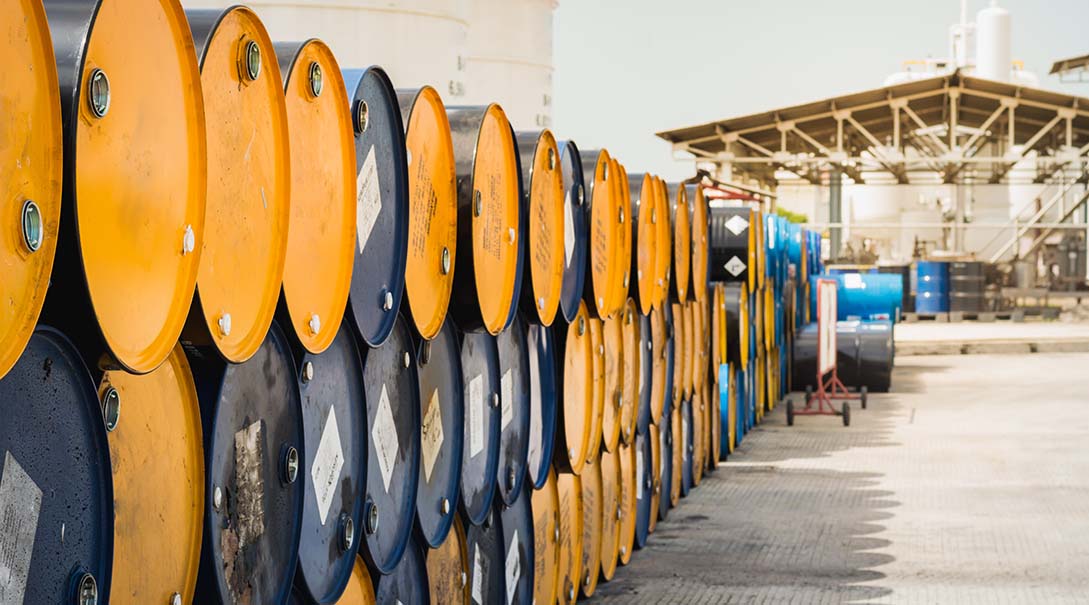Do your company’s operations involve the usage and/or storage of oil? If so, it’s important to familiarize yourself with both state and federal oil storage compliance regulations.
Failing to adhere to applicable laws can result in numerous consequences. If it’s discovered your organization is not complying with the established regulations, you will likely be fined. Failure to abide by the applicable regulations can also put the safety of your employees and the public at risk, which may result in costly lawsuits. Additionally, if you cultivate a reputation for handling oil and other hazardous materials irresponsibly, your company might struggle to maintain customer loyalty.
When dealing with oil storage compliance, it’s always best to consult with experts to ensure you properly obey the law. That said, this guide will provide you with a general overview of the subject.
Table of Contents
Oil Storage Regulations
Again, both state and federal agencies can establish and enforce oil storage regulations. The information here will not necessarily exhaustively cover all regulations that may apply to your business.
Generally, oil storage compliance regulations address such issues as the following:
- The types of containers in which oil may be stored
- The quantity of the oil that may be stored in a container of a given size
- How oil storage containers and equipment must be inspected
- The qualifications required for those involved in oil storage tasks
Those are a few noteworthy examples. Essentially, oil storage regulations exist to limit the chances of oil (including contaminated used oil) from spilling and contaminating the environment, putting worker safety at risk due to combustion, etc.
OSHA Regulations for Above Ground Storage Tanks
OSHA’s regulations for above-ground storage tanks are quite extensive. Main points to be aware of include the following:
- Above-ground tanks must be constructed in a manner that guards against combustion, regardless of whether they are stored inside or outside
- Pipes used in the construction of above-ground or indoor storage tanks must be painted to guard against corrosion
- Above-ground oil storage tanks used for the dispensing of flammable materials must be constructed upon concrete islands that minimize the chances of out-of-control vehicles striking them
It is essential to remember that OSHA regulations for above-ground storage tanks are far more thorough than can be fully addressed here. For example, both OSHA and state regulations will also address the minimum safe distance from a fuel tank to a building.
Conduct research and coordinate with professionals to avoid non-compliance. Fines for failing to adhere to the regulations can be surprisingly costly, and no regulatory agency is going to accept “I wasn’t aware of the requirements” as an excuse for not properly complying with them. This excuse also won’t prevent you from being held liable if victims of negligence decide to file claims or lawsuits against you or your insurer. The cost of devoting time and resources to learning more about these regulations is much less than the potential cost of accidentally failing to comply with them.
Underground Fuel Storage Tanks Regulations
Federal underground fuel storage tanks regulations include such requirements as:
- Owners of underground storage tanks must promptly report the existence of such tanks (including such details as their size, locations, etc.) to the relevant state agency upon their installation
- Anyone selling an underground storage tank must explain to the purchaser their requirements pertaining to notifying state agencies
- Underground storage tanks must meet certain performance standards to be used
- If a qualified state official believes an underground storage tank’s owner will be able and willing to take the necessary corrective action to address a tank leak (or the possibility of one), said individual may require the tank’s owner to take such action
- Piping and similar elements of underground storage tank systems must be routinely inspected for leaks if they are within 1,000 feet of a community water system or drinking well
Be aware that these are merely some of the applicable federal underground fuel storage tanks regulations. In addition to federal regulations, your state might also enforce its own set of laws as well.
Waste Oil Storage
The EPA defines used oil as “any oil that has been refined from crude oil, or any synthetic oil, that has been used and as a result of such use is contaminated by physical or chemical impurities.” Used oil may also qualify as waste oil.
Is Used Oil Hazardous Waste?
Short answer: Yes. Used oil that can’t be recycled must be handled as if it were hazardous waste. Even used oil that has been recycled must typically be handled according to federal hazardous waste oil storage and usage regulations.
Used Oil Recycling Regulations
Used oil may be recycled in a variety of ways. Recycling used oil can allow oil to be reused multiple times, allowing for the conservation of resources.
However, the EPA has established various used oil recycling regulations by which your company must abide. Points to be aware of include:
- Used oil that is to be recycled must be stored in approved oil storage containers before being recycled
- Used oil storage containers must be kept in good condition to prevent leaks
- Used oil storage tanks must be labeled appropriately to ensure everyone in their presence is aware of the fact that they contain used oil
Businesses should generally work with approved vendors who specialize in handling, storing, and transporting used oil for recycling purposes to optimize their odds of avoiding non-compliance
The EPA also reminds those handling used oil that their state regulations may be stricter than those of the EPA. Once more, the importance of compliance cannot be overemphasized. Luckily, coordinating with specialists can make complying with the applicable regulations much easier.
